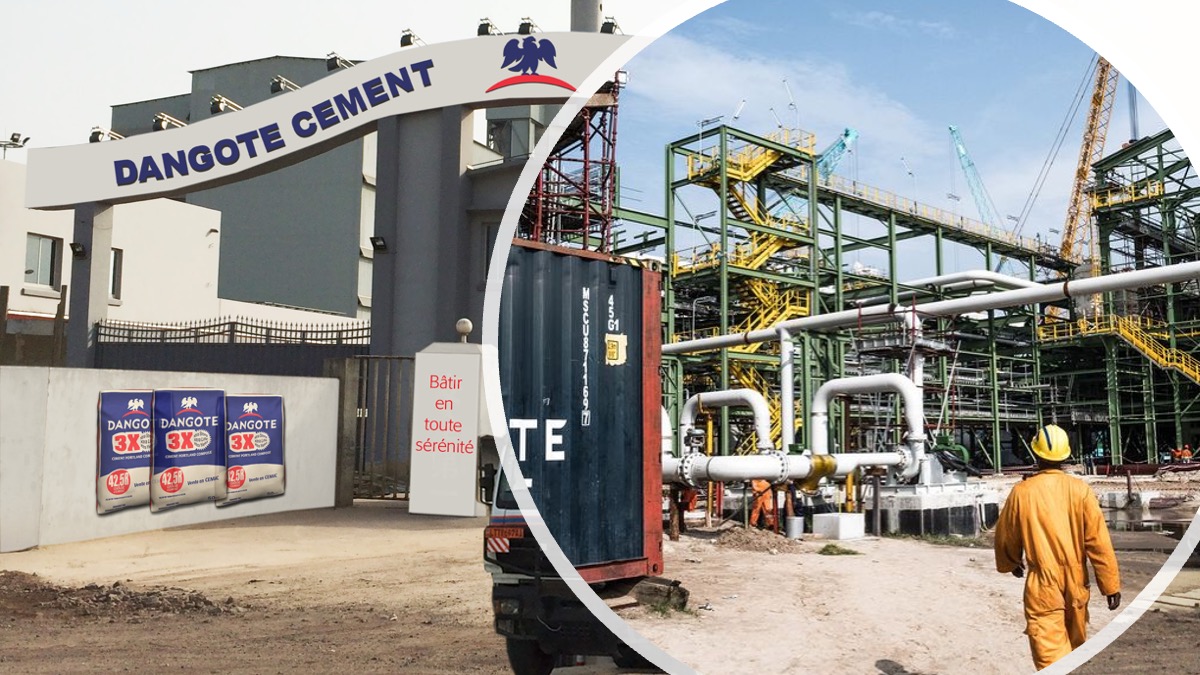Nigeria’s largest cement producer, Dangote Cement Plc, has consistently proven itself to be a dominant force in Africa’s construction and infrastructure sectors. As Nigeria’s economy rebounds from global shocks and the government prioritizes infrastructure development, Dangote Cement stands out as a stable and promising investment. This article delves into the factors that make Dangote Cement a safe bet for investors seeking growth and stability in an emerging market.
Overview of Dangote Cement
1. Market Leadership
- Dangote Cement is the largest cement producer in Africa, with a production capacity of over 51.55 million metric tons annually across 10 countries.
- It holds over 60% market share in Nigeria, making it the undisputed leader in the local cement industry.
2. Revenue and Profitability
- Revenue (TTM): ₦3.25 trillion.
- Net Margin: 27.6%, reflecting strong cost management and pricing power.
- The company consistently delivers robust earnings, supported by economies of scale and vertical integration.
Key Insight: Dangote Cement’s dominance in Nigeria and its Pan-African presence provide a diversified revenue base, shielding it from localized economic downturns.
Factors Supporting Dangote Cement’s Growth
1. Nigeria’s Infrastructure Boom
- Government Initiatives: With ambitious plans to improve roads, bridges, housing, and transportation, cement demand is set to rise significantly.
- Urbanization: Over 50% of Nigeria’s population lives in urban areas, and rapid urban growth drives demand for residential and commercial construction.
- Housing Deficit: Nigeria’s housing deficit of over 17 million units presents a long-term growth opportunity for the cement industry.
2. Export Opportunities
- Dangote Cement exports to several West and Central African countries, including Ghana, Cameroon, and Senegal.
- The company’s export strategy diversifies revenue streams, reducing reliance on domestic markets.
3. Vertical Integration
- Dangote Cement controls its entire value chain, from limestone extraction to cement distribution.
- This integration minimizes costs, ensures supply chain reliability, and enhances profitability.
4. Investments in Efficiency
- Automation: Dangote Cement’s adoption of smart factory technologies improves productivity and reduces waste.
- Energy Efficiency: The company uses alternative fuels like coal and biomass to lower energy costs and reduce carbon emissions.
Key Insight: Dangote Cement’s strategic investments position it to capitalize on Nigeria’s growing demand for construction materials.
Financial Performance and Stock Analysis
1. Revenue Growth
- Revenue grew by 66.39% YoY, driven by increased demand and pricing power.
- The company’s capacity expansion projects support continued growth.
2. Dividend Policy
- Dividend Yield: 6.27%, one of the highest in the Nigerian market.
- Dangote Cement’s consistent dividend payments make it an attractive option for income-focused investors.
3. Stock Performance
- 1-Year Return: +49.63%, outperforming many peers in the Nigerian Stock Exchange.
- The stock’s performance reflects strong investor confidence in the company’s fundamentals and growth prospects.
Key Insight: Dangote Cement combines capital appreciation potential with steady income, appealing to a broad range of investors.
Risks to Consider
1. Energy Costs
- Cement production is energy-intensive, and fluctuations in coal and diesel prices can impact margins.
- While Dangote has mitigated this risk through alternative fuels, it remains a concern in volatile markets.
2. Currency Volatility
- As a major exporter, Dangote Cement faces exposure to naira devaluation, which can affect its cost structure and profitability.
- However, foreign revenue streams provide a partial hedge against currency risks.
3. Market Saturation
- Nigeria’s cement market is becoming increasingly competitive, with players like BUA Cement and Lafarge Africa expanding capacity.
- Dangote Cement’s scale and brand loyalty help it maintain its leadership position, but pricing pressure is a risk.
Key Insight: While risks exist, Dangote Cement’s proactive strategies and financial resilience mitigate many potential challenges.
Sustainability and Future Outlook
1. Commitment to Sustainability
- Dangote Cement has implemented initiatives to reduce its carbon footprint, including:
- Using alternative fuels such as biomass.
- Investing in energy-efficient kilns and other technologies.
2. Capacity Expansion
- Ongoing investments in new plants and upgrades ensure the company can meet future demand growth.
- Projects like the Obajana Cement Plant expansion solidify Dangote’s market leadership.
3. Regional Growth
- Dangote Cement’s presence in multiple African countries positions it to benefit from regional infrastructure projects and trade agreements like the African Continental Free Trade Area (AfCFTA).
Key Insight: Sustainability efforts and regional diversification ensure long-term relevance and competitiveness.
Why Dangote Cement is a Safe Bet
1. Strong Fundamentals
- Market leadership, robust revenue growth, and high profitability make Dangote Cement a reliable investment.
2. Dividend Consistency
- With a 6.27% dividend yield, the company appeals to investors seeking regular income.
3. Growth Potential
- Nigeria’s infrastructure drive and Dangote’s export strategy provide multiple growth avenues.
Conclusion
Dangote Cement Plc is more than just a cement producer; it is a cornerstone of Nigeria’s economic development and a leader in Africa’s industrial landscape. With strong fundamentals, a dominant market position, and a clear focus on sustainability and efficiency, the company offers a compelling case for both growth and income-focused investors.
While risks such as energy costs and market competition exist, Dangote Cement’s proactive strategies and financial resilience make it a safe bet in Nigeria’s growing economy. As the country’s infrastructure ambitions continue to unfold, investing in Dangote Cement positions stakeholders to benefit from one of the most dynamic growth stories in the region.

Leave a Reply